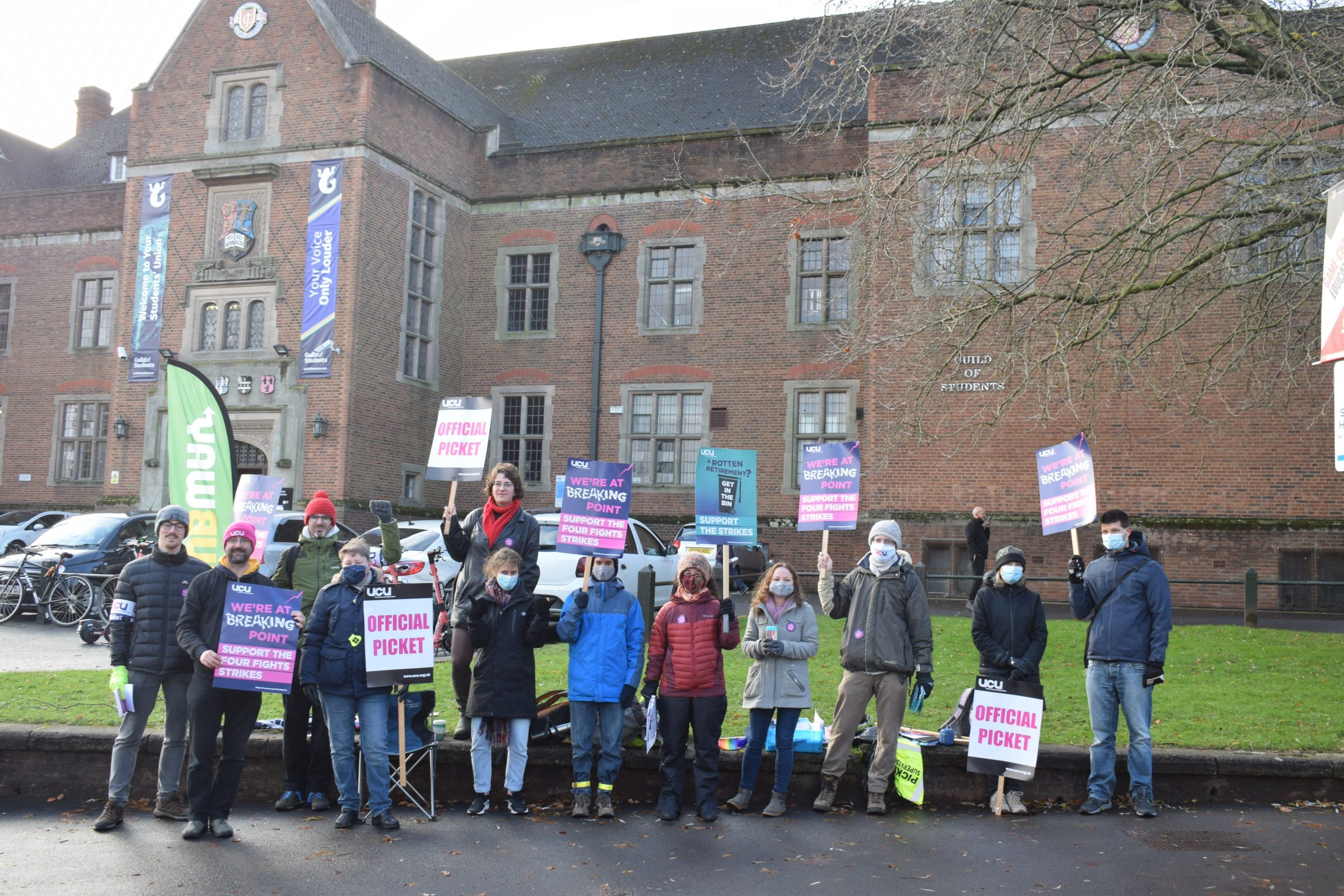
Social Secretary Ella Kipling reports on the UCU strikes affecting campus
The University and College Union (UCU) have announced another round of strikes this academic year which will be taking place in February. 44 institutions will be striking between 14th February and 18th February, 68 institutions will be striking between 21st to the 22nd February, and 63 institutions will strike for three days from 28th February to 2nd March. Institutions will also be putting in place ‘action short of a strike’
Institutions will also be putting in place ‘action short of a strike’ (ASOS). ASOS is usually action which only affects certain aspects of your work and involves taking actions such as working to contract, not covering for absent colleagues, removing uploaded materials related to lectures and classes that will be cancelled as a result of strike action, not rescheduling lectures and classes, and not undertaking any voluntary activities.
UCU has reported that the ASOS is now live, with ‘working to contract’ and ‘not undertaking voluntary activities’ beginning back on 1st December 2021, and ‘not rescheduling classes and lectures cancelled due to strike action,’ starting 21st December 2021. ‘Not covering for absent colleagues,’ and ‘removing uploaded materials related to, and/or not sharing materials related to, lectures or classes that will be or have been cancelled as a result of strike action,’ started on 5th January 2022.
The UCU website states that until further notice, action short of a strike will last until Tuesday 3rd May, 2022. Decisions over the different forms of ASOS, including when they are called, are made through the democratic mechanisms of the UCU.
President of the National Union of Students (NUS) Larissa Kennedy, explained that students ‘regularly witness how staff and students’ conditions are intertwined’ and said: ‘University management forcing staff onto casualised contracts, cutting their pay, and now trying to cut thousands of pounds from their pensions cannot be divorced from the fact that one in 10 students has needed to access a foodbank to survive the pandemic—these are not the actions of a university leadership or an education system that have the interests of staff or students at heart.’
Kennedy described staff working conditions as ‘student learning conditions,’ which is why they have chosen to stand ‘shoulder to shoulder’ with those striking to fight for a more just education system. She said in a statement that it is entirely in the gift of vice chancellors and employers to come to a ‘negotiated settlement and address the fundamental issue repeatedly raised by staff,’ and if they do not, ‘students will hold employers accountable.’
Jo Grady, the UCU general secretary, said that for a sector worth tens of billions of pounds, it is ‘beyond disgraceful’ that staff must face ‘vicious pension cuts, falling pay and are pushed to breaking point under deteriorating working conditions.
Meanwhile, chief executive of the Universities and Colleges Employers Association Raj Jethwa urged the UCU to ‘engage constructively’ in this year’s multi-employer negotiating round, rather than continuing to strike.
Final year student at the University of Birmingham Cerys Gardner told Redbrick: ‘I understand and empathise with why lecturers are striking, their pay and conditions are awful, but as a final year it is frustrating to be missing out on yet more education and I am concerned about the impact it could have on my final grades.’ I am concerned about the impact it could have on my final grades
Another final year student, who has chosen to remain anonymous, told us that they are ‘frustrated about the impending strike action,’ pointing out that they have missed out on ‘so much valuable teaching due to the pandemic and strikes.’
‘Whilst I get the reasons why lecturers are choosing to strike, I’m at the point where I just think it’s unfair (it’s only directly affecting us students, especially final year ones) not the institutions themselves. I also think that the removal of resources during strikes should not be allowed – we’re paying 9 grand a year to have our few hours of teaching a week cancelled and no resources to even teach ourselves the content that we’re missing out on,’ they said.
Read more news articles:
UoB Promises to Sign Pledge Forbidding Use of NDAs in Cases of Sexual Violence

Comments